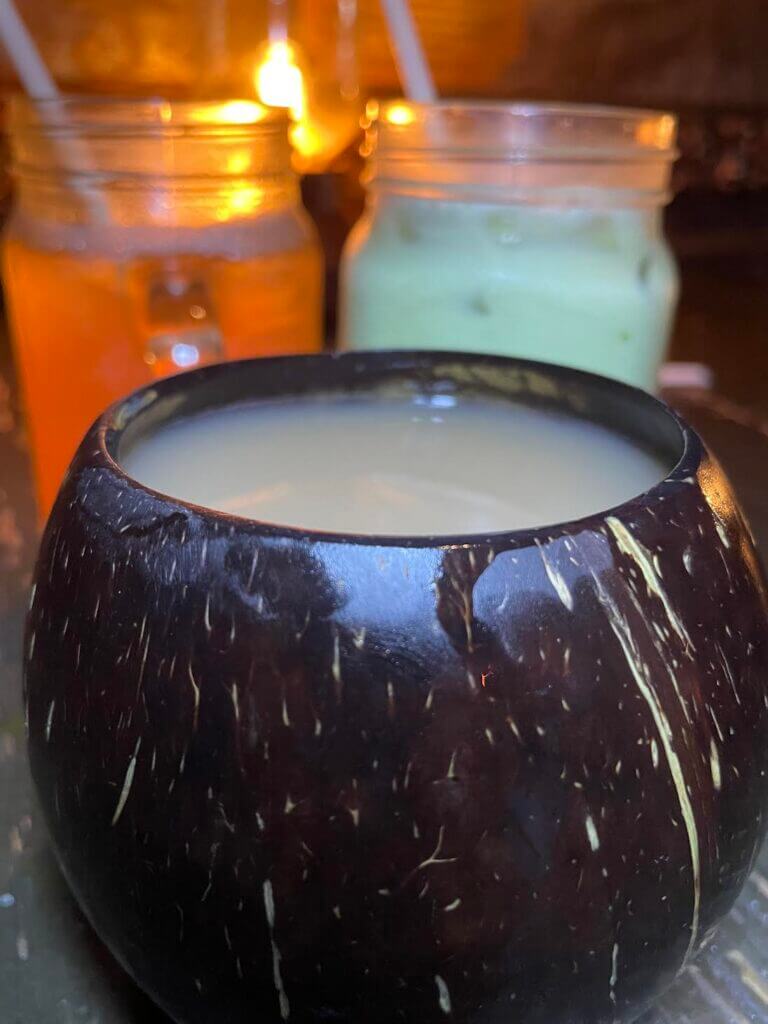In the ever-expanding world of herbal remedies and holistic wellness, a diverse array of teas has gained recognition for their potential to provide relief from various physical and emotional discomforts. From pain management and anti-inflammatory properties to mood enhancement and relaxation, these herbal brews offer a spectrum of benefits for those seeking natural alternatives to support their well-being.
This comprehensive guide explores the differences between the main apothecary pain-relieving and euphoric teas, including some well-known and lesser-known varieties. We’ll delve into the origins, primary effects, preparation methods, potential side effects, and cautions associated with each of these herbal teas. Whether you’re seeking relaxation, pain relief, or a gentle mood lift, this guide will provide insights into a wide range of herbal teas, helping you make informed choices on your path to health and wellness.

Kratom Tea:
- Origin: Southeast Asia
- Primary Effects: Pain relief, euphoria, energy boost, relaxation
- Strains: Red (sedating), Green (balanced), White (stimulating)
- Potential Side Effects: Nausea, dependence (with prolonged use)
- Caution: Use in moderation due to the potential for dependence.
Kava Tea:
- Origin: South Pacific
- Primary Effects: Relaxation, stress reduction, mild euphoria
- Preparation: Kava root is soaked in water, and the liquid is consumed
- Potential Side Effects: Temporary numbness in the mouth
- Caution: Avoid excessive consumption due to the risk of liver issues with long-term, heavy use.
Blue Lotus Tea:
- Origin: Egypt and other parts of the world
- Primary Effects: Mild euphoria, relaxation, enhanced dream states
- Preparation: Dried blue lotus flowers are steeped in hot water
- Potential Side Effects: Mild to no adverse effects reported
Soursop Tea (Graviola):
- Origin: Tropical regions
- Primary Effects: Anti-inflammatory, potential pain relief
- Believed to have anticancer and antiparasitic properties
- Preparation: Leaves and fruits are used to brew tea
- Potential Side Effects: None reported
Moringa Tea:
- Origin: Subtropical regions
- Primary Effects: Nutrient-rich, potential anti-inflammatory effects
- Preparation: Leaves are used to make a nutrient-dense tea
- Potential Side Effects: None reported
Canna Tea (Cannabis-Infused Tea):
- Origin: Cannabis plant
- Primary Effects: Pain relief, euphoria, relaxation
- Preparation: Cannabis-infused into tea, various strains available
- Potential Side Effects: Psychotropic effects, legal restrictions in some areas
Wild Lettuce Tea:
- Origin: Europe, Asia, and North America
- Primary Effects: Mild sedation, potential pain relief
- Preparation: Leaves and sap used to brew tea
- Potential Side Effects: None reported

Turmeric Tea:
- Origin: India and Southeast Asia
- Primary Effects: Anti-inflammatory, potential pain relief
- Preparation: Turmeric root or powder steeped in hot water
- Potential Side Effects: None reported, but may interact with certain medications.
Ginger Tea:
- Origin: Southeast Asia
- Primary Effects: Anti-inflammatory, warming, pain relief
- Preparation: Fresh or dried ginger steeped in hot water
- Potential Side Effects: None reported, but may cause digestive discomfort in large quantities.
Cinnamon Tea:
- Origin: Derived from the inner bark of trees
- Primary Effects: Warming, potential anti-inflammatory properties
- Preparation: Cinnamon sticks or powder steeped in hot water
- Potential Side Effects: None reported, but use in moderation.
Lemongrass Tea:
- Origin: Tropical regions
- Primary Effects: Calming, potential pain relief
- Preparation: Fresh or dried lemongrass steeped in hot water
- Potential Side Effects: None reported
Green Tea:
- Origin: Asia
- Primary Effects: Antioxidant, mild caffeine content for alertness
- Preparation: Green tea leaves steeped in hot water
- Potential Side Effects: Caffeine sensitivity, mild stimulation.
Devil’s Claw Tea:
- Origin: South Africa
- Primary Effects: Anti-inflammatory, potential pain relief
- Preparation: Devil’s claw root or dried herb steeped in hot water
- Potential Side Effects: None reported, but consult a healthcare professional for extended use.
Nettle Tea:
- Origin: Worldwide
- Primary Effects: Anti-inflammatory, potential allergy relief
- Preparation: Dried nettle leaves steeped in hot water
- Potential Side Effects: None reported, but may have a diuretic effect.
Willow Bark Tea:
- Origin: Derived from the bark of willow trees
- Primary Effects: Anti-inflammatory, potential pain relief
- Preparation: Willow bark steeped in hot water
- Potential Side Effects: None reported, but consult a healthcare professional if you have aspirin allergies.

Chinese Skullcap Tea:
- Origin: China
- Primary Effects: Mild sedation, relaxation, potential anxiety relief
- Preparation: Chinese skullcap root is steeped in hot water
- Potential Side Effects: None reported
Lemon Balm Tea:
- Origin: Europe, Asia, and North America
- Primary Effects: Calming, potential mood enhancement
- Preparation: Lemon balm leaves are used to make a fragrant tea
- Potential Side Effects: None reported
Wood Betony Tea:
- Origin: Europe
- Primary Effects: Relaxation, potential headache relief
- Preparation: Wood betony leaves are used to make tea
- Potential Side Effects: None reported
St. John’s Wort Tea:
- Origin: Europe, Asia, and North America
- Primary Effects: Potential mood enhancement, mild anxiety relief
- Preparation: St. John’s Wort leaves and flowers are used to brew tea
- Potential Side Effects: May interact with medications and cause photosensitivity.
Chamomile Tea:
- Origin: Europe, Asia, and North America
- Primary Effects: Calming, relaxation, potential sleep aid
- Preparation: Chamomile flowers are used to make a fragrant tea
- Potential Side Effects: None reported
Prickly Ash Tea:
- Origin: North America
- Primary Effects: Warming, potential circulation improvement
- Preparation: Prickly ash bark is used to brew tea
- Potential Side Effects: None reported
Milky Oat Tea (Avena Sativa):
- Origin: Worldwide
- Primary Effects: Potential stress relief, mood enhancement
- Preparation: Milky oat tops are used to make tea
- Potential Side Effects: None reported
Please remember to use these teas in moderation and consult with a healthcare professional if you have underlying health conditions or are taking medications. Additionally, local regulations and availability may vary, so it’s essential to research the laws in your area. To join an online apothecary, visit PlantMedicineMafia.com.
